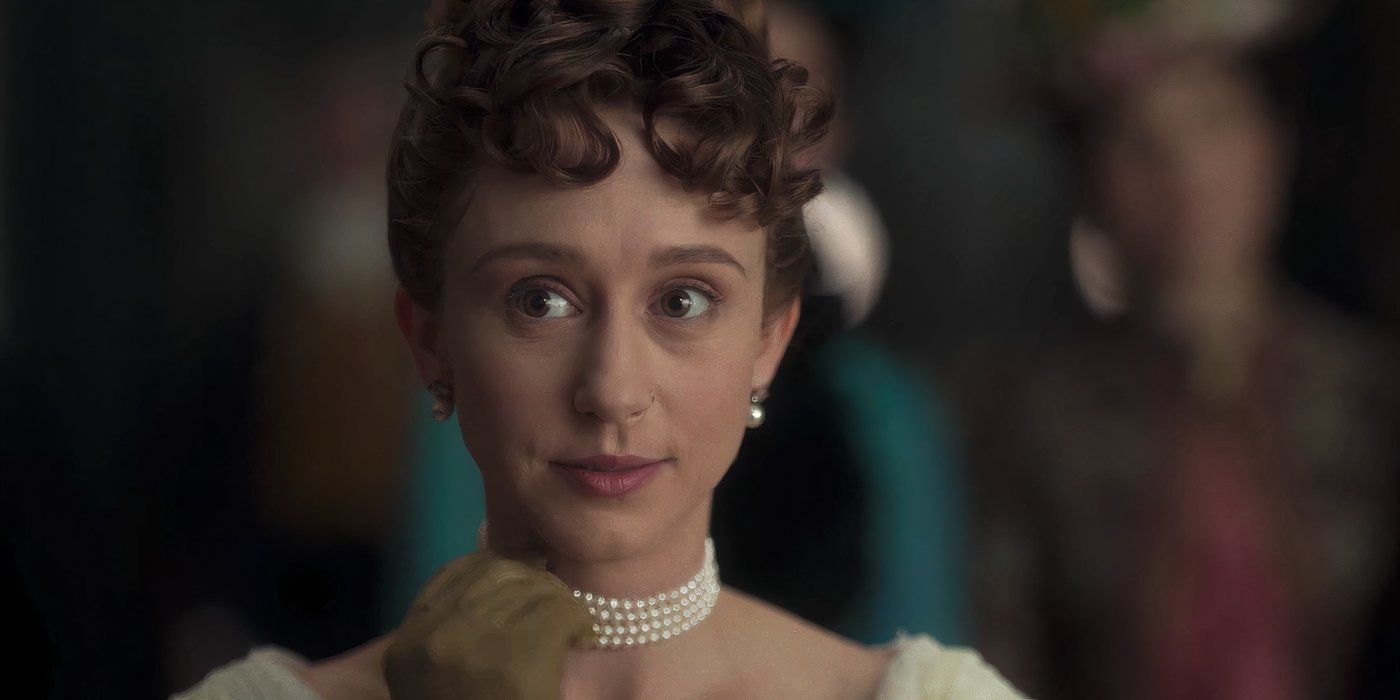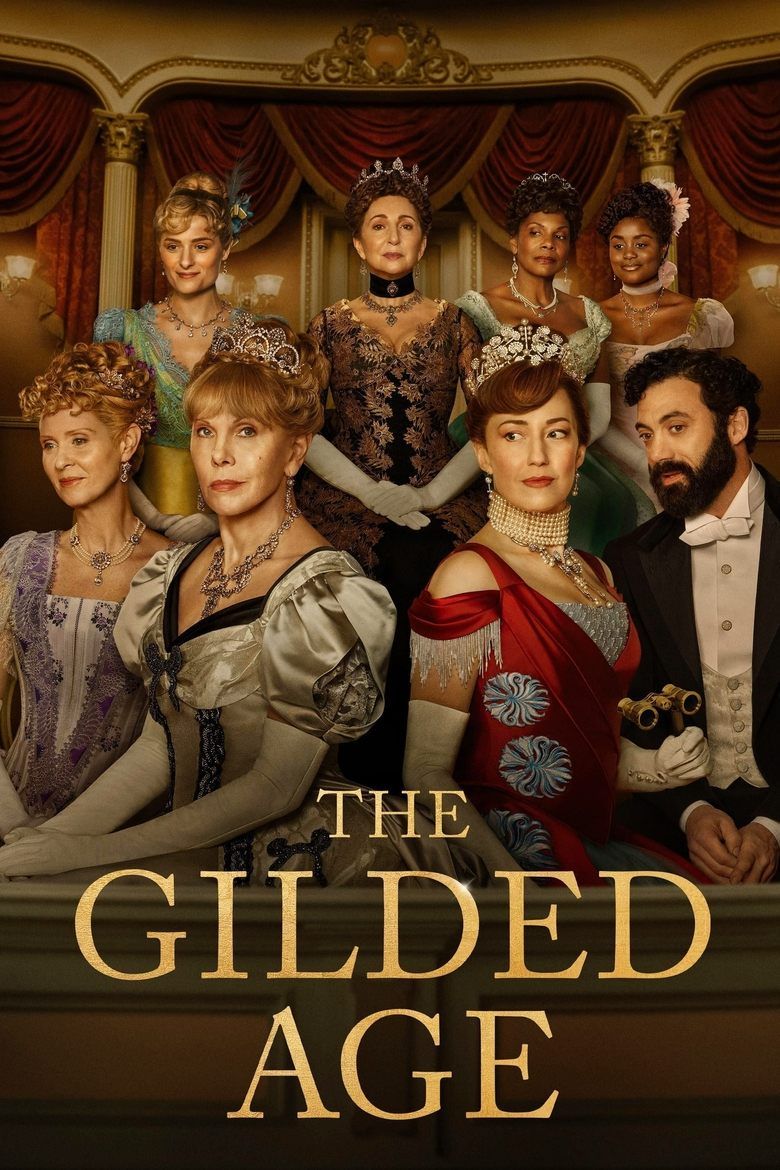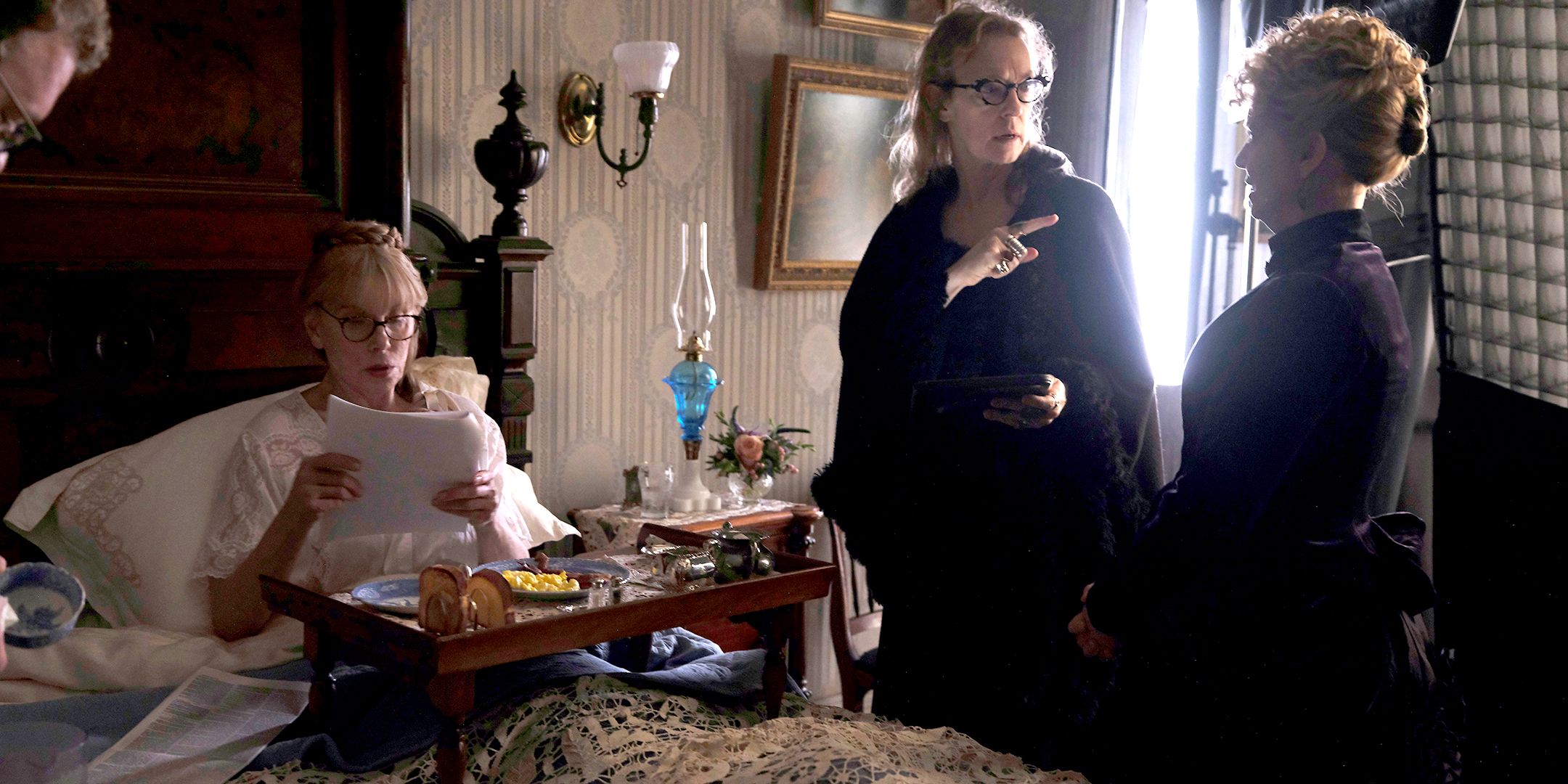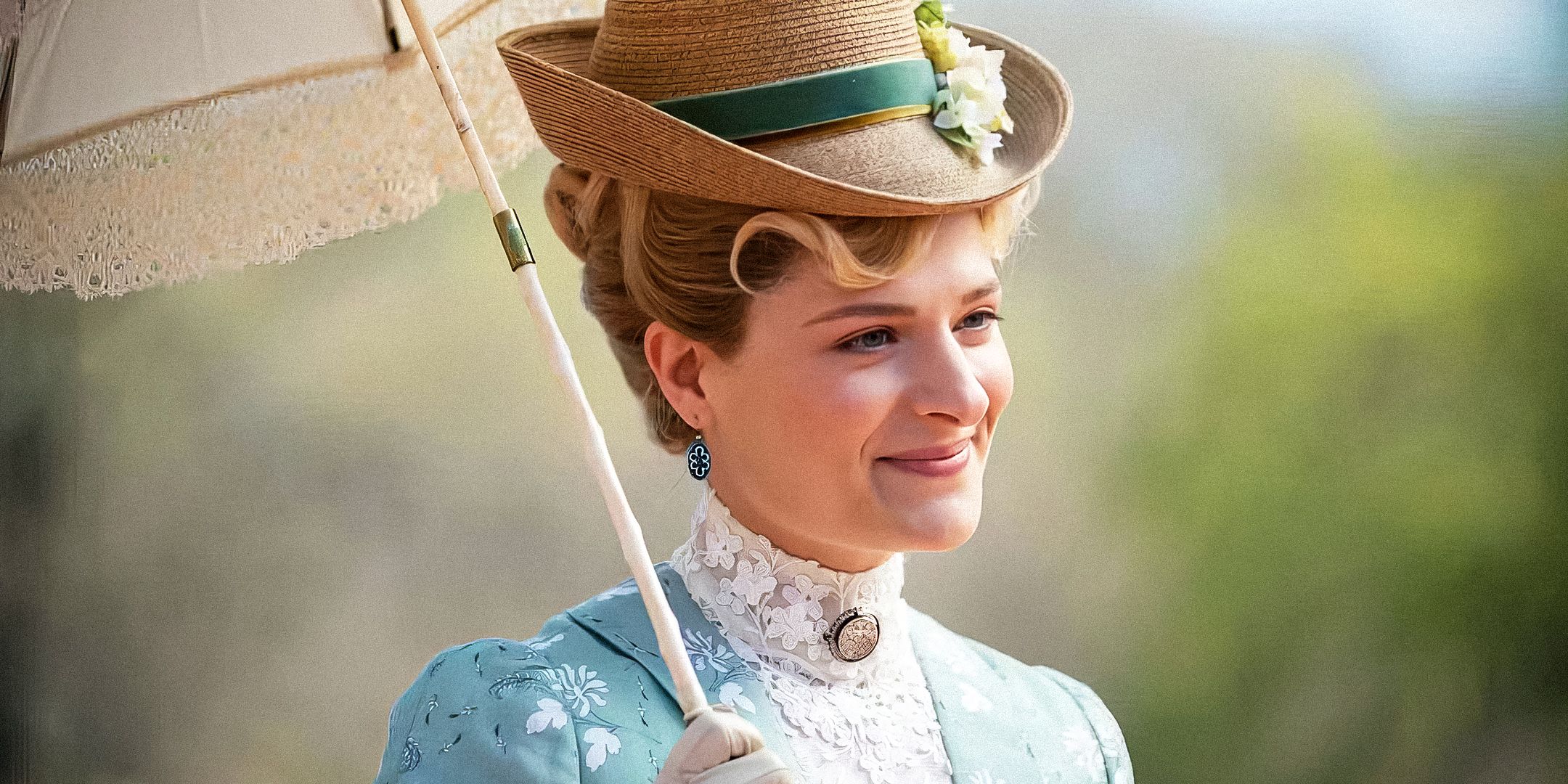Warning: SPOILERS lie ahead for the first six episodes of The Gilded Age season 3!The stakes are at an all-time high as the Russell family finds themselves on the verge of getting everything they’ve ever wanted, while the van Rhijn-Brook family sees a change in their standing in The Gilded Age season 3. Created by Downton Abbey‘s Julian Fellowes, the HBO historical drama is set in the eponymous New York era and follows both families vying for higher social status than the other.
The Gilded Age season 3 picks up some time after the events of the so-called Opera War, in which the Russell family came out on top after Bertha promised The Duke marriage to Gladys. As Carrie Coon’s character aims to move forward with the marriage, Morgan Spector’s George also risks the family’s wealth with a desire to expand his railroad ownership that could also revolutionize the industry.
All the while, the Brook family house finds themselves struggling to reclaim their social standing, particularly as Cynthia Nixon’s Ada becomes the new head of household, much to the chagrin of Christine Baranski’s Agnes and the confusion of their servants. But as everyone’s ambitions rise to dangerous proportions, their well-laid plans may bring more than just their social statuses down.
With just a few episodes remaining in the season, ScreenRant interviewed Deborah Kampmeier to discuss The Gilded Age season 3. The director, who previously worked on season 2 and returned for three episodes this season, offered insight into some of the biggest developments this season, including Ada’s rise to power, the Russells’ marital problems, and Marian’s ongoing romantic problems.
Ada’s Arc Is Really “Heart-Centered” Compared To Other Gilded Age Characters
“…We Are Led On That Journey Of Belief & Hope & Longing.”
One of the biggest developments of The Gilded Age season 3 has been Ada rising to the head of the van Rhijn-Brook household, even in spite of Agnes’ interferences. This has also led Kampmeier and fellow returning director Michael Engler to have fun highlighting this dynamic change in their visuals, even if “those details are scripted” by Fellowes and his writing team.
“Julian’s so smart, and the wit that he writes in for this power shift is really delicious,” Kampmeier expressed. “I think mostly you’re really getting the fun of that shift in the performances between Ada and Agnes, but also between the staff and how, at this moment, the uncertainty of who’s the boss affects the staff. It’s really fun to lean into that.“
However, beyond her household problems, season 3 has also continued Ada’s heartbreak from the death of Robert Sean Leonard’s Luke in The Gilded Age season 2’s penultimate episode, and her desire to carry forward his legacy with her temperance movement support. This, in turn, led to her learning of Andrea Martin’s Madame Dashkova, a clairvoyant who claims to be able to connect her with Luke’s spirit.
Reflecting on this arc, Kampmeier began by praising how Emmy winner Cynthia Nixon has played Ada and Luke’s love story, calling it “profound” and feeling that the star has influenced how Ada is “really heart-centered” in everything she does. She even recalls getting to film Ada and Luke’s marriage proposal, in which Kampmeier “was crying when we were shooting it“.
…she plays so deep into it that I think there’s not much to do but create the space for her to live in…
Kampmeier also celebrated the extensive, “well-researched information” that she, Nixon and the rest of the team get to work off of from Fellowes and Sonja Warfield, even down to utilizing “actual drawings of these seances and fortune-tellers“. She also remains in awe of the show’s production design team, who are “really amazing” in not just the creation of Madame Dashkova’s space, but also making everything “feel as authentic as possible“.
As to the actual story behind Ada and Dashkova’s scenes, the director explained that the biggest challenge was to “walk the line so that the audience can hope that this is real“. This, in turn, makes the reveal that “everything you’ve seen before” is false all the more impactful, particularly thanks to Nixon’s performance.
Through her performance, we are led on that journey of belief and hope and longing. So it was really building that world for Cynthia to step into and just reveal her heart, which is so astonishing. Always.
The Russells’ Marriage Has Reached “Its Breaking Point”
“…George’s Stance At The End Is Really Interesting.”
Though the season 2 finale saw the family finally get a step closer to everything they’ve wanted, The Gilded Age season 3 has seen the Russell family reaching new emotional lows. George’s railway plans threaten to bankrupt the family, while Bertha promising Gladys to the Duke for marriage has left them divided on what they want for their daughter.
One notable scene involving this comes in episode 2, in which George confronts Bertha by expressing, “I just want to know when I get a say in our daughter’s life“, to which she swiftly shoots him down with “The day I’m in your boardroom“. As Kampmeier explains, their conversation is a broad reminder of the “societal structure” at the time.
“The children and their lives are in her domain, but the business is his domain,” Kampmeier denoted. However, with Bertha having taken it upon herself to win the Duke’s respect at the end of season 2, she was “stepping over” into George’s domain, thus impacting the power dynamic in their marriage.

Related
The Real Life Heiress The Gilded Age’s Gladys Russell Is Based On, Explained
Gladys Russell has had a huge season 3 story, and episode 4 only cemented that further, but the downtrodden character actually has a real inspiration.
“I think he does understand, at a certain level, the value of Gladys marrying the Duke,” Kampmeier explained. “And he says to her, ‘Give him a chance. You can make the decision yourself, but give him a chance and see.’ I think he does see the wisdom of Bertha’s point of view around this, and what this would mean to Gladys.“
The director went on to praise how Coon and Spector “hold that storyline” throughout the season, creating a “very taut” atmosphere. For the aforementioned bedroom scene, though, the group all had the goal of “leaning into each of their hearts“, avoiding “focusing on the fight or the discord between them“, but instead on their growing distance.
It wasn’t about, “I don’t like you now,” but about, “My dream is going in such a different direction than yours.”
“George’s heart is so invested in his daughter’s happiness and his promise to her, while Bertha’s heart is so invested in this dream of the Duke,” Kampmeier described. “I talked to Carrie [Coon] about this, and I felt like we both agreed that there’s a way in which we’re seeing Bertha’s inner teenager come out in her dream of the Duke.
“Her wish for Gladys is her own wish for herself, although George is her Duke in a way,” Kampmeier continued. “I do think she has a youthful, childlike dream that she is projecting on her daughter. It felt important to really lean into those two separate dreams, and to establish this distance between them.“
This culminates in a tense confrontation between the two after receiving a telegram from Gladys in which she’s found herself bullied and disrespected by many around her. As Kampmeier explains, the telegram “is really the breaking point” in the growing distance between them, while also being intrigued by George’s stance on not knowing who to blame.
Calling it a “shocking” moment as George tells Bertha that “I am no longer playing this game with you“, the director also feels it’s a “devastating” turn for their relationship as “we’re torturing our poor audience” by pulling them apart. “Yeah, George the Robber Baron is probably pretty awful, but we love him because of how he treats his wife, and we want that power marriage,” Kampmeier expressed.
Marian Is Closing Her Heart After So Many Romantic Setbacks
“…Her Response Of Closure Makes So Much Sense.”
While her aunts have spent much of the season bickering with one another, The Gilded Age season 3 has seen Marian finally get closer to romantic bliss after being jilted by Tom Raikes in season 1 and awkwardly ending her engagement with Dashiell in season 2, with she and Larry Russell carrying on in secret before he eventually proposes marriage to her.
Though the two were on a happy path, much to the disappointment of Agnes and Bertha, Marian saw another heartbreak as she learned Larry visited the risqué club, The Haymarket, with a friend, causing her to break off the engagement. For Kampmeier, though, she actually defends Larry keeping this from Marian, saying he knew “it would upset her“.
“I think he doesn’t see harm in it, because he’s just going to have a drink with his friends, and it’s a fun night out,” Kampmeier stated. “Why tell Marian if it’s going to upset her? He’s not going to do anything bad or naughty. I think it’s just about where the party was. His friends were having their bachelor party, and he saw no need to hurt Marian’s feelings.“
As to the letter in which she broke off her engagement to Larry, Kampmeier describes it as being a flip from the proposal acceptance in episode 5, in which “she opens her heart so wide“. This, in turn, makes Marian’s decision to cut the romance off more understandable, with the director saying “her response of closure makes so much sense“.
Kampmeier went on to point out the sympathetic heart of the decision for female viewers, in which “we understand why she reacts that way“, but also shared the hope for audiences to defend Larry and say “he didn’t do anything wrong“. Though she says the creative team “know he didn’t do anything wrong“, the director says the decision came from Marian’s imagination running away from her.
Her imagination about what must have happened is too devastating for her to keep her heart open enough to even hear his argument. So, she closes her heart. Is it strength? Is it weakness? I don’t know. It’s just so human as a woman in a world filled with men.
The final two episodes of The Gilded Age season 3 air August 3 and 10 on HBO.

The Gilded Age
- Release Date
-
January 24, 2022
- Network
-
HBO Max
- Showrunner
-
Julian Fellowes
-

-

Morgan Spector
George Russell





